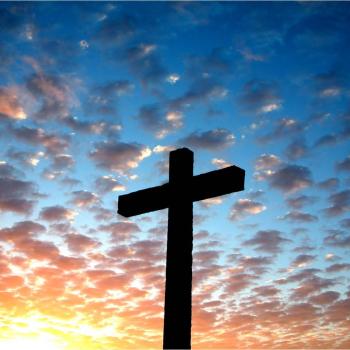Ask a seven year-old what it’s like to be 70.
Get angry when a 16 year-old new driver doesn’t understand how to disassemble a car engine.
Speak with a pair of 15-year-olds about the hermeneutic that informs their theology to determine their eschatology.
In his book, Stages of Faith, Dr. James Fowler created the theory of the stages of faith development.

When you squander too much time engaging with people online about issues that are rooted in theology – who their understanding of God is and what God’s message is – it’s likely those people will be completely incapable of understanding what you’re saying.
According to Fowler, people develop faith through certain stages. Their understanding of God progresses, as they progress and grow.
Fascinatingly, humanity’s understanding of God can be seen progressing through the pages of Jewish scripture into the fullness of Christ. God walks through the garden in the cool of the day, God is vengeful, God demands sacrifice, God is unknowable, God can be known through Jesus and the Holy Spirit.
Although the growing understanding of God can be traced through the Bible, some remain fixated on certain aspects of God.
This is because they never progress beyond certain stages.
While Fowler ascribed ages and a timeline to faith development, the simple fact is some college professors, faith leaders and other public officials never progress beyond stage one – stage three. (Think of Franklin Graham, James Dobson, and other literalist fundamentalists.) I’ve encountered a lot of atheists who reject a stage three understanding of God – I don’t blame them, I did too.
Others reach more developed stages of faith development. For example, stage five, “a time when a person is also ready to look deeply into the social unconscious—those myths and taboos and standards that we took in with our mother’s milk and that powerfully shape our behavior and responses. We really do examine those, which means we’re ready for a new kind of intimacy with persons and groups that are different from ourselves. We are ready for allegiances beyond our tribal gods and our tribal taboos. Stage Five is a period when one is alive to paradox. One understands that truth has many dimensions which have to be held together in paradoxical tension.” (Think Tony Campolo and some other Progressive Christians.)
The highest stages are people like the Dalai Lama, Henri Nouwen and some aspects of Pope Francis.
(I believe faith development can occur like Abraham Maslow’s self-actualization – growth in different areas, so that you are more open to faith issues in some areas rather than others. So Pope Francis can be at a stage six in his faith in one area, and yet at another part of his faith believe it’s acceptable to marginalize women of faith.)
Now, here’s the part of Fowler’s book that has been most profound for me – people can only fully understand a stage after they’ve grown through it. They have great difficulty understanding a stage while they remain in it. They have nearly no chance of comprehending, much less agreeing with a stage they’ve not yet reached.
People can’t completely understand a stage that they haven’t yet grown to and they assume their current stage is the highest level achievable. So a stage three Christian assumes he’s the ‘true Christian,’ and is completely incapable of understanding a more complex or nuanced type of faith.
For me, I can see the faith development stage of the Dalai Lama or Henri Nouwen, for example, but my faith isn’t developed to the point where I don’t get angry and curse. Perhaps one day, I will grow to the next stage. But today is a day I curse, and tomorrow looks like it may be a lot like today.
Again, people can see down the stages of faith development, but they can’t see up.
So if someone believes that Christianity and militarization are compatible, they are probably around stage three or stage four. They can’t understand why a stage five Christian opposes militarization.
Stages of faith development explains how some Christians can support guns and advocate for the marginalization of the marginalized.
There’s little point in arguing about sexuality, guns, capitalism, scripture, or other issues that divide Christians, because we simply are talking past each other. Some of us can’t hear or understand others, while others can’t speak in a way that can be understood.
If they were able to understand the aspects of a higher stage of faith development, people would already be at that stage. Trying to communicate with these people is like asking a 15 year-old to explain their hermeneutic.
And we all know how difficult it is sometimes to talk with a 15 year-old.












